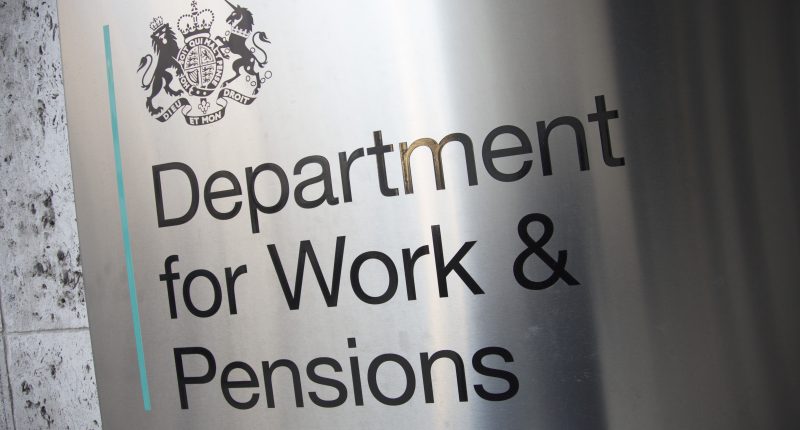MILLIONS of households on benefits and Universal Credit will see their payments rise next year.
Benefits will rise in April 2024 in line with the consumer price index (CPI) level of inflation for September, which was 6.7%.
The Chancellor, Jeremy Hunt, announced the news in his Autumn Statement yesterday.
Speaking in the House of Commons, he also announced:
The Department for Work and Pensions (DWP) usually uses September’s inflation figures to make the decision on uprating benefit and pension payments from the following April.
READ MORE IN MONEY
Nine benefits are legally required to increase each April.
However, there were concerns that the government was planning to use a lower inflationary figure to uprate welfare payments.
The yearly inflation rate for September came in at 6.7%, compared to 4.6% for October.
But Jeremy Hunt has now committed to using September’s inflation figure as usual.
Most read in Money
The payment boost means that the average family on Universal Credit will be around £470 a year better off.
The amount your benefits will rise depends on what you’re receiving.
Which benefits must rise in line with inflation?
The following nine benefits are legally required to have their payments rise with the previous September’s rate of inflation each April:
Below, we’ve listed some examples of how much you can expect your payments to go up based on a 6.7% rise.
Personal independence payment (PIP)
People with long-term health conditions or disabilities can get extra help from a benefit known as personal independent payment (PIP).
PIP consists of two parts; whether you get one or both depends on how severely your condition affects you.
You may get the mobility part of PIP if you need help going out or moving around. The weekly rate for this is either £26.90 or £71.
Meanwhile, on the daily living part of PIP, the weekly rate is either £68.10 or £101.75 – and you could get both elements.
This means you could get up to £172.75 in total.
If you get the maximum amount, you can expect your payments to rise from £172.75 a week to £184.32 a week from April 2024 – up by £11.57 a week.
Disability living allowance
Disability living allowance is made up of two parts: the “care component” and the “mobility component”.
To get DLA, you must be eligible for at least one of the components.
If you receive the highest care component right now, you’ll get £101.75 a week.
You’ll get £26.90 a week if you receive the lowest amount.
From April 2024, your weekly payments will rise from £101.75 to £108.56 – up by £6.81 a week if you’re on the highest amount.
If you’re on the lowest, your weekly payments will go from £26.90 to £28.70 – up £1.80 weekly.
Attendance allowance
Attendance allowance is paid to people who’ve reached state pension age and need help looking after themselves because of a physical or mental disability.
The lower rate is worth £68.10 a week.
From next April, payments will rise from £68.10 to £72.66 a week – a rise of £4.56.
The higher rate is worth £101.75 weekly, which will rise to £108.56.
Which other benefits will rise?
The following ten benefits don’t have to rise in line with inflation, but after the Chancellor’s announcement, they will:
- Universal Credit
- Child benefit
- Contributory employment and support allowance
- Contributory jobseeker’s allowance
- Statutory maternity/paternity pay and maternity allowance
- Income-based jobseeker’s allowance (JSA)
- Income-related employment and support allowance (ESA)
- Income support
- Working tax credit
- Child tax credit
We’ve listed some examples of how much Universal Credit, child benefit, and income support payments will rise by next year.
Universal Credit
More than five million people claim Universal Credit, which was first introduced in 2013.
The average family on Universal Credit will see an increase of around £470 a year from April 2024.
This is the equivalent of an increase of around £39 per month.
Under the system, you receive different monthly amounts depending on your circumstances:
- If you’re single and under 25 – £292.11
- If you’re single and 25 or over – £368.74
- If you live with your partner and you’re both under 25 – £458.51 (for you both)
- If you live with your partner and either of you are 25 or over £578.82 (for you both)
If you’re single and over 25, your payments will increase from £368.74 to £393.45 – an increase of £24.71.
For couples on Universal Credit, over the age of 25 and with two children (born on or after 6 April 2017), payment will increase from £1,117.98 to £1,193.44 – a rise of £75.46.
Child benefit
Most parents in the UK can claim child benefit, but there are still certain eligibility rules.
You can claim if you’re responsible for a child under 16 or under 20 in approved education or training.
Only one person in the household can get child benefit, but there is no limit to how many children you can claim.
There are two child benefit rates – one for the eldest child and another for each further child or children.
The current rate for your eldest or only child is £24 per week. That’s £96 a month or £1,248 a year.
You can get £15.90 for every additional child.
With a 6.7% increase, the rate for your eldest or only child will increase from £24 a week to £25.60.
For every additional child, payments would be hiked from £15.90 to roughly £17.
Income support
Income support is extra money for people who don’t have enough to live on.
It’s a means-tested benefit, which means your income, savings and any sources of cash are considered when deciding how much you’ll receive.
How much you get depends on your personal circumstances.
However, if you’re single and aged between 16 and 24, your weekly payments start from £67.20.
It will go up to £71.70 a week – a £4.50 a week pay rise, from April 2024.
If you’re in a couple, and you’re both over 18, your payments will increase from £133.30 to £142.23 – an increase of £8.93.
It’s also worth noting that millions of Brits are missing out on other benefits they’re entitled to, adding up to billions of pounds in total.
You can also join our new Sun Money Facebook group to share stories and tips and engage with the consumer team and other group members.










